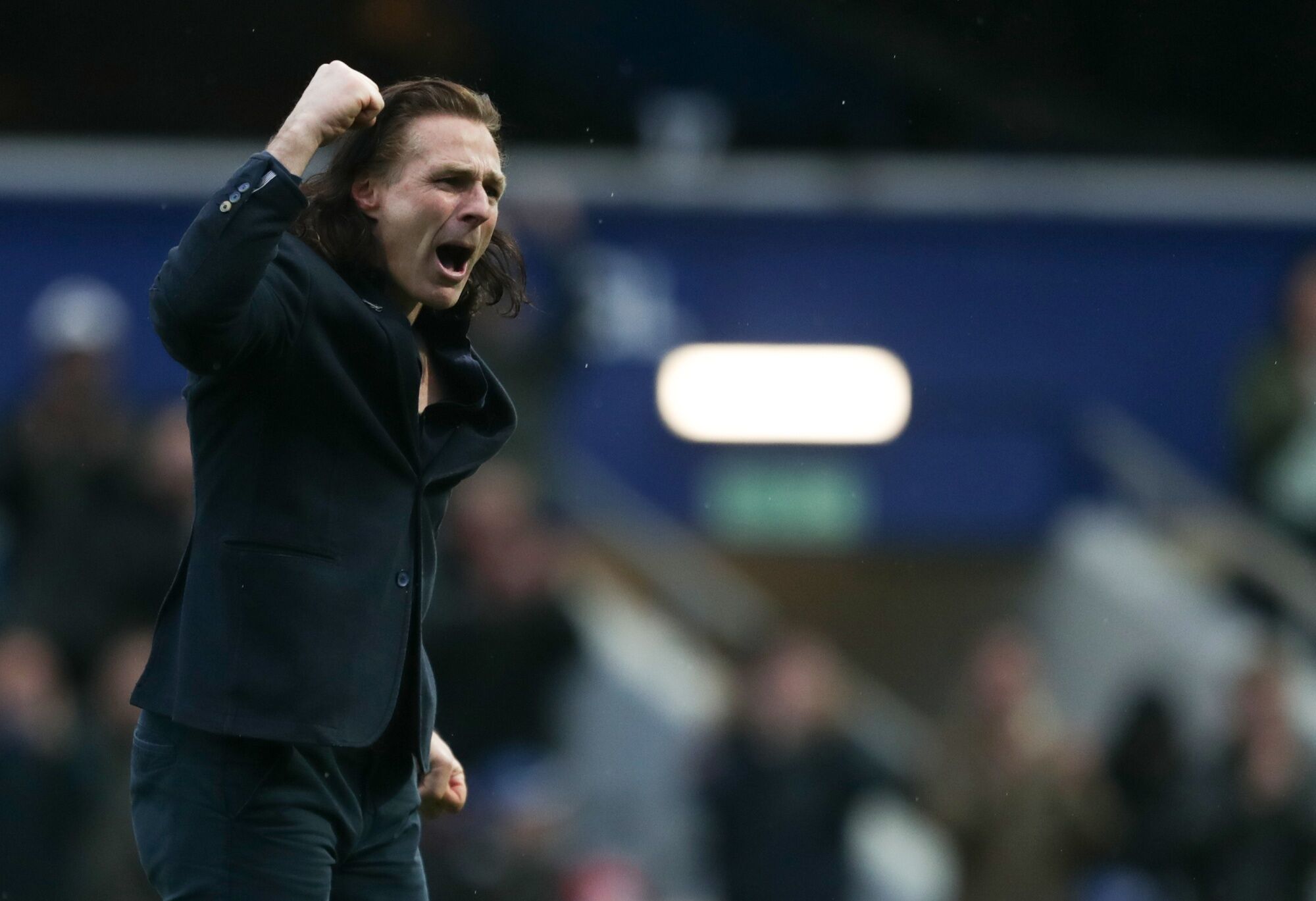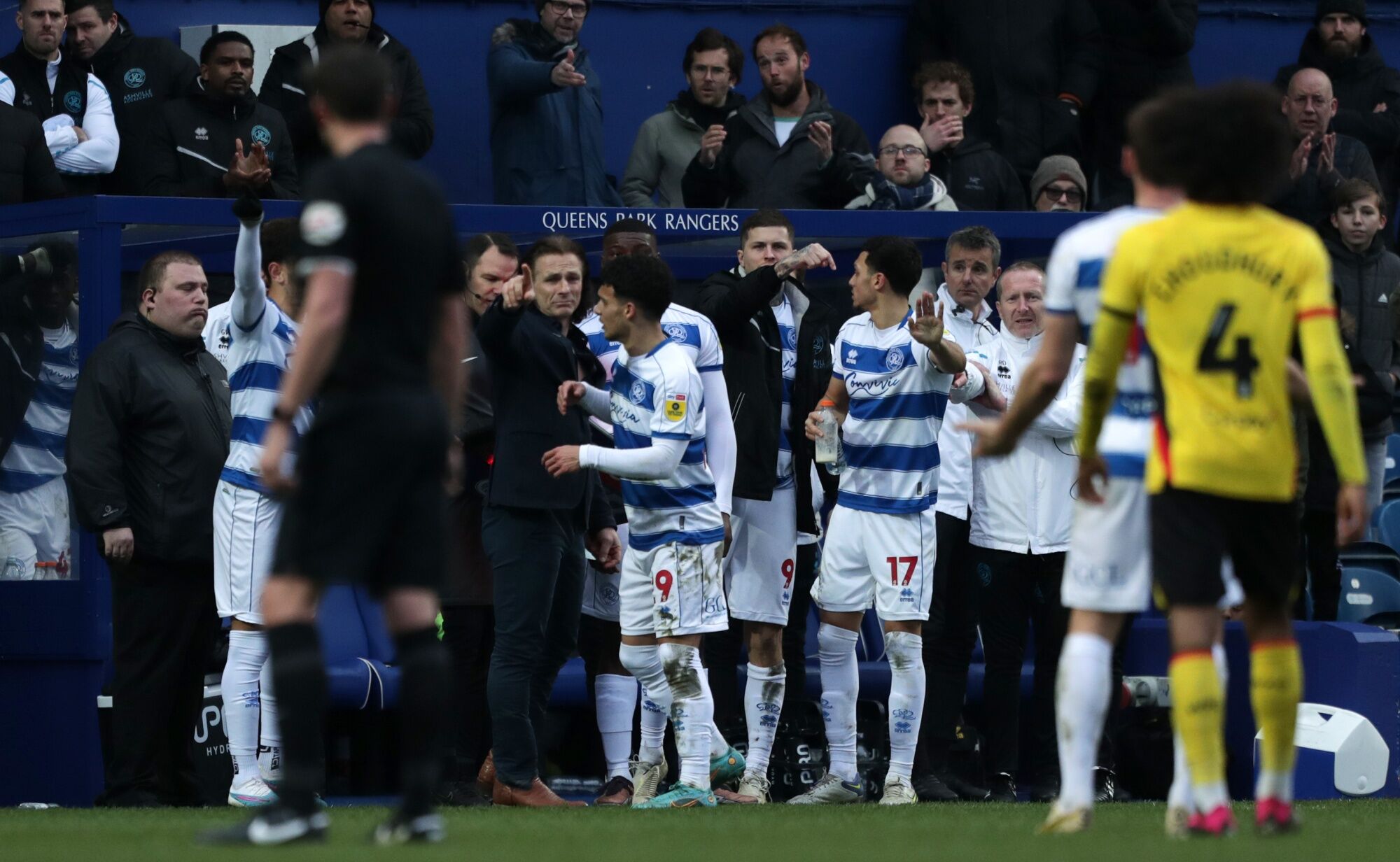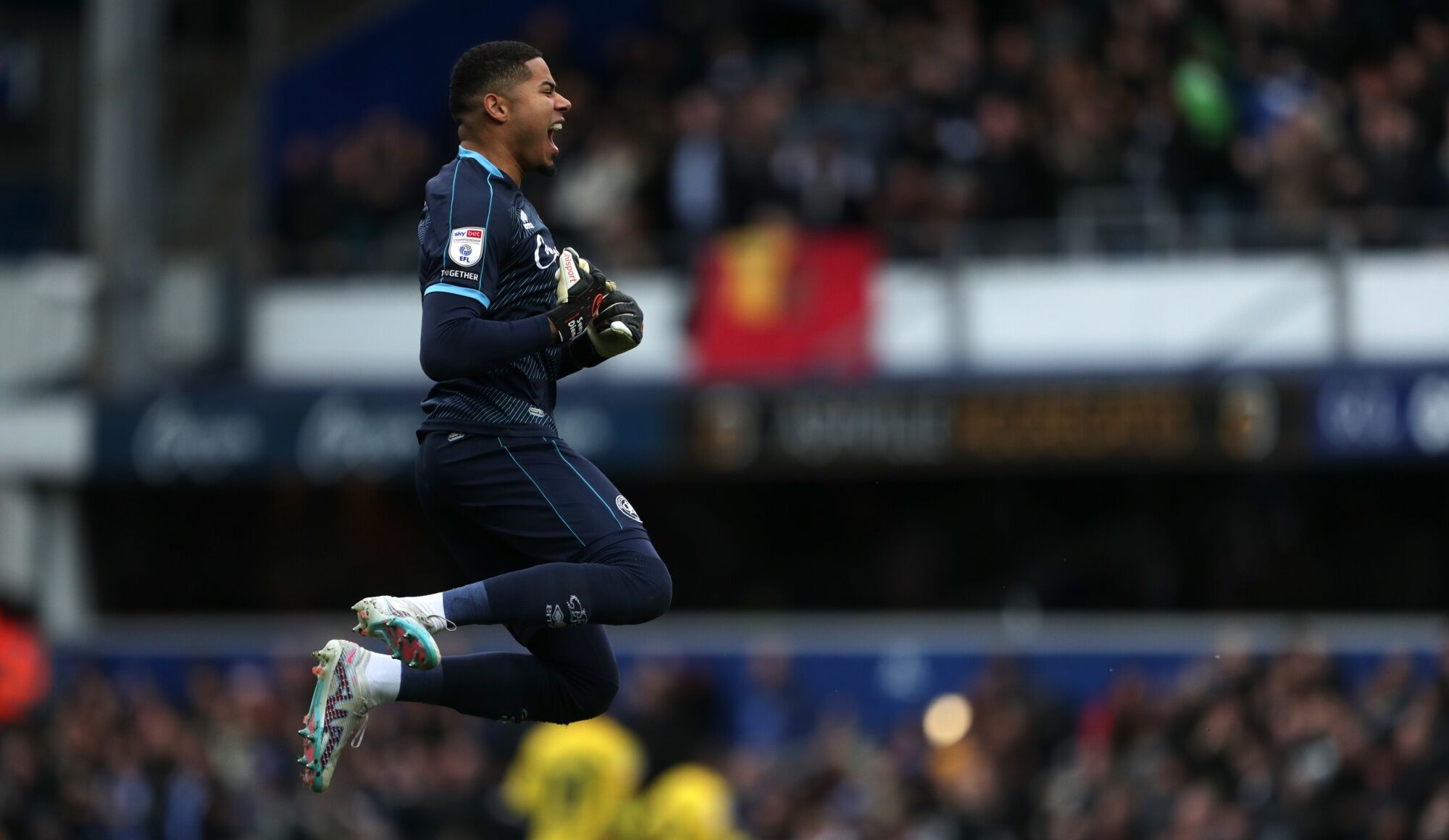After optimism was renewed around Loftus Road with an important win over Watford, the mood quickly soured with QPR’s 6-1 drubbing at Blackpool and the lacklustre 1-0 home defeat to Birmingham City.
It was no secret Gareth Ainsworth had a big job on his hands when he was appointed as Neil Critchley’s successor – the Hoops were in free-fall with a relegation battle appearing inevitable despite their good start to the campaign.
Now, with five games in charge under his belt, the 49-year-old manager has some big questions left to answer.
The win over Watford seemed like a turning point, something to build on, especially with more matchups against sides from the bottom half of the table on the horizon with Ainsworth talking about how the result had set the standard of what he can expect from his players.
“I hope everyone saw what the commitment levels were from my boys. [Between] the fans and the staff around me, I thought it was a real QPR as one performance. Going forward, that’s what I’m expecting,” Ainsworth said.
Despite the expectations and positivity running into the encounter with Blackpool, things could not have gone much worse for his side.

In the shocking 6-1 massacre, the Hoops were 3-0 down before the clock had even ticked past 15 minutes and 4-1 down at half-time. Ainsworth even apologised to the travelling fans for the horrendous performance, repeatedly claiming it “was not good enough”.
They followed that up with a poor performance at home to Birmingham which saw them once again concede inside five minutes and then fail to convert any of their chances to give their opponents a crucial three points in their own survival battle.
These two results, on top of an international break, can leave a really bitter taste – even with a manager preaching positivity and optimism.
But perhaps one of Ainsworth’s philosophies will prove to be a good starting point to rekindle the optimism many people felt after the Watford win.
After that match, Ainsworth said: “You have to celebrate every little victory. When someone heads it out or makes a tackle, it’s just as important as when [we] score goals.
“I have to credit Paul Hall, he’s the one who said we have got to start celebrating these little victories out on the pitch.
“To see the boys doing that is fantastic, because I’ve played. I know what it’s like to play, and to play at Loftus Road. When some teammate comes up and gives you a high five or says well done, it’s the most important thing in the world.
“Managers tell you what to do, the fans support you because they’re supporters, but your own peers doing it means so much more. Those little victories need to be celebrated.”

While the Blackpool result suggests there is still plenty of work to be done outside of this, the philosophy here is a solid building block in improving this side.
Until the summer transfer window, Ainsworth has to work with what he has in front of him, and improving the mentality of the players is the first step towards putting points on the board.
After all, who doesn’t love recognition after doing something well? A common misconception in professional football is that players should be completing solid tackles and making smart decisions, and therefore shouldn’t expect praise for it. This, of course, is a silly notion.
READ MORE: There’s blame to go around after Neil Critchley’s short-lived QPR reign
Strikers are expected to score goals, but every time they do, mass celebrations ensue as everyone comes to pat that player on the back. Goals do win games, but those tackles in the final third and smart decisions in tight positions can make all the difference between conceding or not.
Against Watford, the positivity shown from players such as Sam Field and Chris Martin became infectious as every challenge was celebrated with a high five or slap on the back, and the back three of Jimmy Dunne, Rob Dickie and Field had plenty to celebrate as they claimed an impressive clean sheet with keeper Seny Dieng having very little to do.

Perhaps his methods may be viewed as unorthodox, such as bringing in a performer to teach the side about the Haka, a ceremonial dance from Maori culture, but at this point, perhaps the unorthodox is what QPR need. The ho-hum style of Neil Critchley didn’t work, so why not shake things up?
The question remains though – while it may have worked at Watford, how can you regain that confidence after two difficult-to-shake results just before the international break?
This is, of course, a valid concern. Given recent form and league position, it would be easy and understandable for any fan to look at the win as an anomaly and the Blackpool result as a return to the norm.
READ MORE: Kevin Gallen on boyhood dreams coming true and breaking QPR records
Here is where Ainsworth still has plenty of work to do. Those celebrations of the small victories are important and can help to add up to actually winning a game of football.
Now the challenge is consistency. Can that positivity, that optimism, and that confidence continue week after week?
If Gareth Ainsworth can figure out the keys to consistency, that positivity he’s instilled in his side will translate into points so QPR can finish the season looking forward rather than looking up from the dreaded relegation places.